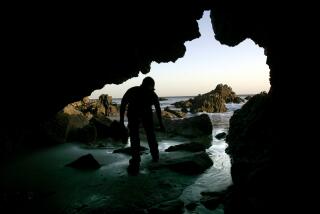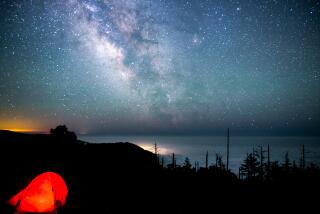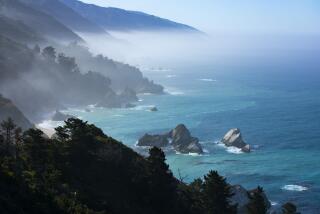Forest fees to be extended
A controversial recreational fee -- locally known as the Adventure Pass -- is expected to be extended this week by Congress for 10 years.
The Recreational Fee Demonstration Program was created in 1996 on a temporary basis to pay for maintenance on public lands. It was reauthorized several times and has collected $867 million since inception. The program was due to expire on Jan. 1, 2006, but will be extended by an amendment slipped into the 1,000-page Omnibus Appropriations Act for 2005 -- sidestepping attempts earlier this month by Western senators to scuttle the bill.
Debate over the fee demonstration erupted in September when Rep. Ralph Regula (R-Ohio) introduced a bill to make the test program permanent. The legislation failed in the Senate after chairmen of four land-use subcommittees, all western Republicans, objected. Regula, who is widely expected to become chairman of the House Appropriations Committee, appealed directly to Sen. Ted Stevens (R-Alaska), chairman of the Senate Appropriations Committee, to include the bill in the Omnibus Appropriations Act, according to congressional staffers.
The bill wonât become law until itâs signed by President Bush, which officials say is likely.
Drafts of the legislation allow the U.S. Secretary of Agriculture to charge usage fees on public lands managed by the Forest Service, the National Park Service, the U.S. Fish and Wildlife Service, the Bureau of Land Management and the Bureau of Reclamation.
In a change from the current program, the fee, under the proposed law, would not be charged for parking or stopping at a scenic pull-off in national forests and public lands. But fees can be levied for use of any facilities, including campgrounds, picnic areas and possibly hiking paths. The bill also permits additional fees to be charged at boat launches, portable toilets and historic structures and allows the National Park Service to charge entry fees.
Officials say it is unclear whether fees will be raised under the proposed legislation. A final draft of the legislation was not available at press time.
Department of Agriculture officials say the program is popular, noting that up to 80% of fees are spent on improving the area where they are collected.
âA reasonable person doesnât object to paying a modest fee if they know that money is going to improve the forest they are visiting,â said Mark Rey, undersecretary of U.S. Department of Agriculture.
Public land activists say they agree in theory with the legislation but are concerned that the extension was passed without full debate.
âCan the Forest Service take a fairly rustic trailhead, put a table and sign there and then charge hikers forever?â says Alasdair Coyne of Keep the Sespe Wild, an Ojai environmental group that has worked to eradicate the fee. âThis legislation never had a public debate, it never went through the appropriate channels.â
Questions also remain about the feeâs implementation because specific details have not been worked out identifying where the fee will be assessed. In addition, there is some concern that it will become a hidden tax.
âRepresentative Regula just wants to take the tax dollars spent on public land and spend them somewhere else,â says Rep. Peter A. DeFazio (D-Ore.). âThis is just an attempt to create a new source of revenue by taxing forest users.â
Federal officials based in California, however, say the program is a success.
âWeâre grateful for any government dollars we get, but itâs simply not enough to keep up with the wear and tear that occurs in Southern Californiaâs national forests,â said Matt Matthias with the U.S. Forest Service. âWe need this money.â
The bill further stipulates that fees collected under this program cannot be used to study endangered species.
More to Read
Sign up for Essential California
The most important California stories and recommendations in your inbox every morning.
You may occasionally receive promotional content from the Los Angeles Times.










